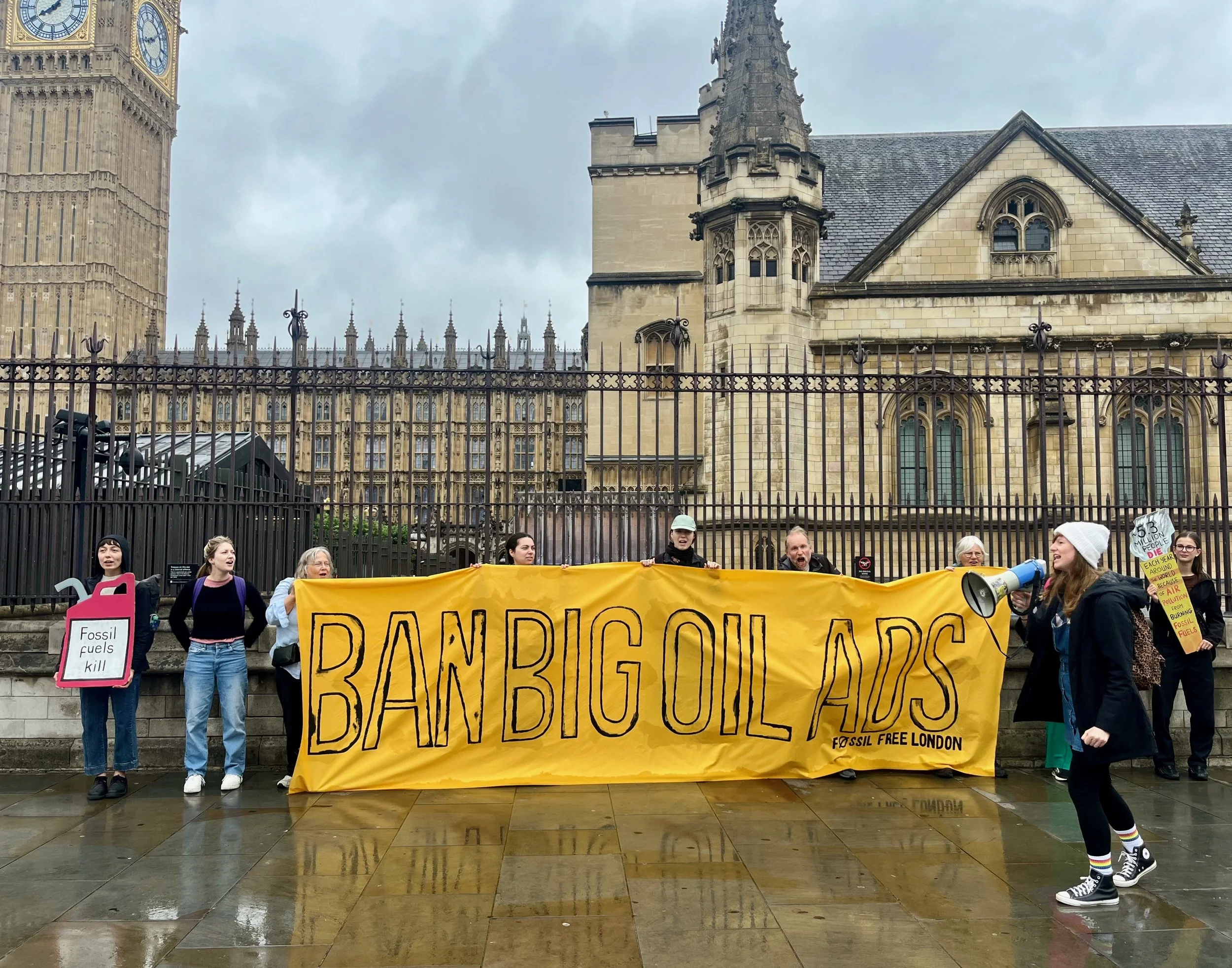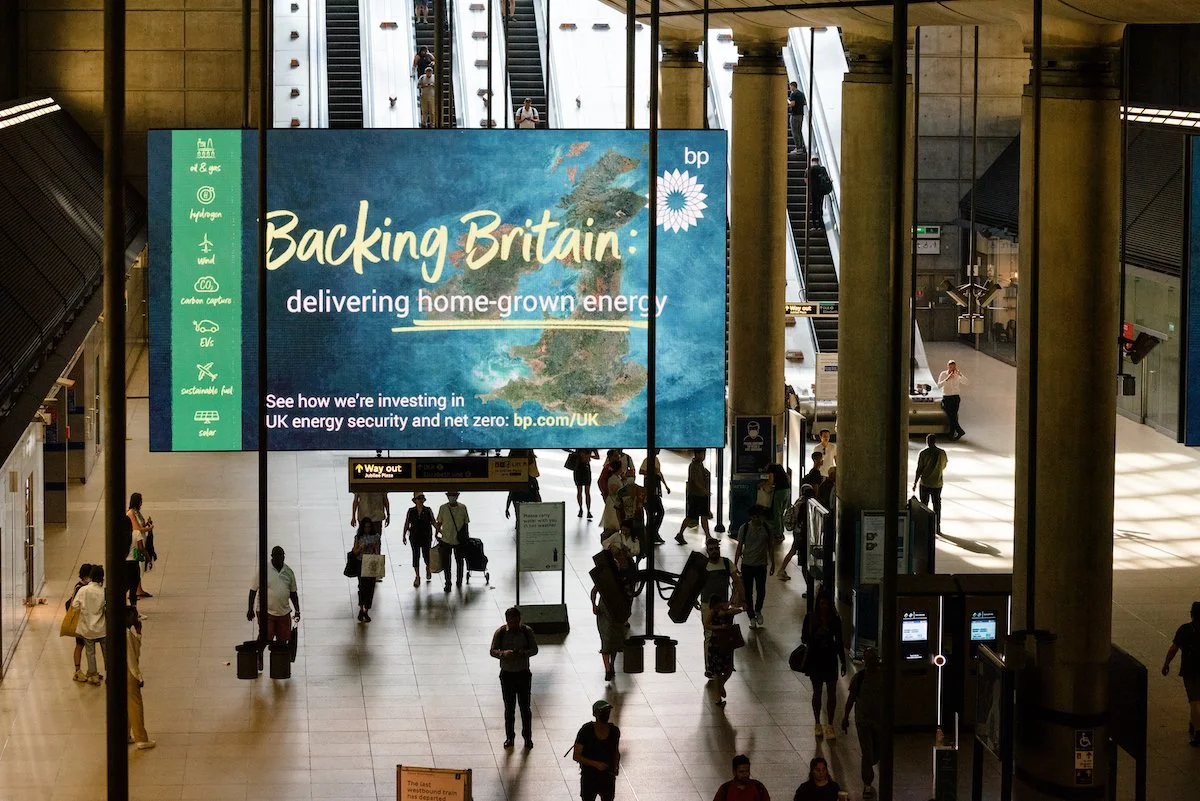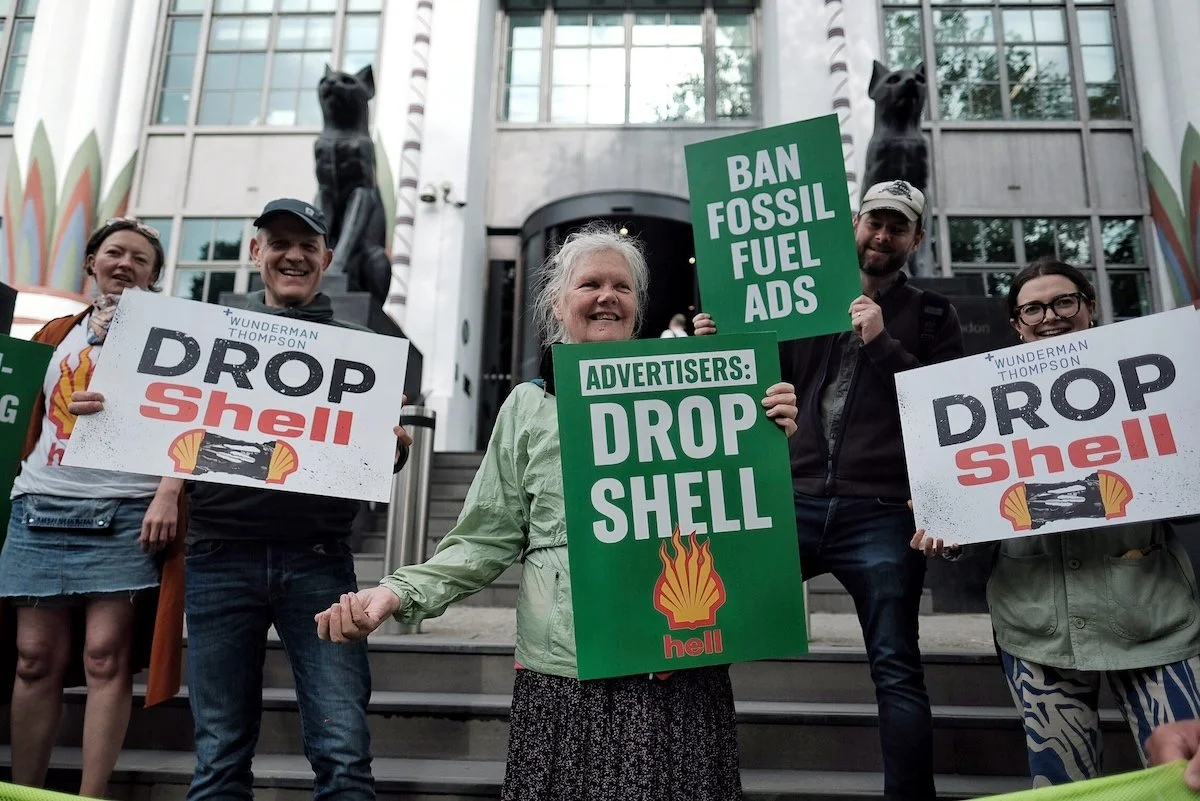UK Members of Parliament say fossil fuel marketing is “a co-ordinated strategy” to delay structural change
Above: UK Members of Parliament debate a petition to ban fossil fuel advertising and sponsorship, 7 July 2025
“If tobacco’s harm justified a ban, how can we not at least ask the same of an industry whose products now threaten life on earth as we know it? ”
For the first time in history, UK MPs have debated restrictions on fossil fuel advertising and sponsorship amid mounting concerns about the impacts of polluters’ marketing on air quality, climate and health.
MPs from across the party spectrum ranging from Labour to Green, Lib Dem and Conservative, and including Parliamentary Under-Secretary of State for Energy Michael Shanks MP, took part. The debate was triggered after a petition led by broadcaster and wildlife conservationist Chris Packham gained more than 110,000 signatures. A transcript of the debate is available on Hansard.
A co-ordinated strategy to build trust
Jacob Collier MP, who opened the debate on behalf of the petitions committee, acknowledged tensions on the issue, including whether or not companies that are genuinely diversifying their energy supply, should be permitted to promote their progress.
However, he stated that ”fossil fuel advertising is not just a matter of a few billboards here and there; it is increasingly a co-ordinated strategy to build trust, shape culture and delay structural change”, asking MPs present: “If tobacco’s harm justified a ban, how can we not at least ask the same of an industry whose products now threaten life on earth as we know it?”
A line in the sand for the ASA’s role
MP Collier, who had met with the Advertising Standards Authority and other stakeholders in the run up to the debate, noted that the ASA had made it clear that it “has no official position on a ban and that it is for Parliament to decide”.
This marks an important escape from the the circular argument in which MPs have previously deflected the need to introduce advertising restrictions by asserting that advertising is already regulated by the ASA.
Badvertising’s previous research has found that only 2.4% of environmental complaint cases are banned. More importantly, however, is the fact that the ASA can only act on false claims and greenwash, with no power to address advertising that it does not deem misleading but that promotes the fossil fuel industry.
Advertising restrictions work
MP Collier reiterated the importance of new ad controls for climate policy, citing a leaked BP memo revealing that these companies strategically deploy marketing “to reinforce their social license and influence consumer behaviour by associating themselves with progress, positivity and public good.”
His opening remarks drew a parallel to other successful precedents in marketing restrictions: “We ban tobacco ads not to silence smokers, but to protect children. We restrict junk food advertising during children’s programming not because we do not like Big Macs, but because the power to persuade can do real harm if left unchecked.”
Restrictions on tobacco marketing, introduced under Tony Blair’s Labour government in 2002, reduced the uptake of smoking by 37%. The Labour government’s ban on junk food advertising is projected to prevent an estimated 20,000 cases of childhood obesity with estimated £2bn savings for the NHS.
Demonstration outside Westminster on the day of the debate. Credit: Fossil Free London
“Government must treat this as a public health crisis”
Afzal Khan, MP for Manchester Rusholme, noted the impacts of air pollution, primarily caused by burning fossil fuels, on public health, with poor air quality causing an estimated 1,200 premature deaths per year in Greater Manchester, and 43,000 in the UK, saying: “the Government must treat this as a public health crisis and act now to ban fossil fuel advertising and sponsorship.”
This was reiterated by Dr Simon Opher MP, who told the Hall about his experience as a practicing GP, seeing children, adults and elderly patients with debilitating respiratory illness from air pollution. Dr Opher MP noted the health inequalities reinforced by polluters’ marketing and the public health case for ending the most polluting types of advertising. He said that Spain is exploring an end to advertising for short haul flights, and that “when we stop advertising, we reduce consumption”.
Badvertising research has shown that an individual who reports being “sometimes" exposed to SUV advertisements is 71% more likely to own an SUV than a standard car, and 250% more likely to own an SUV than no vehicle at all.
While the Westminster Hall debate focused primarily on debating advertising and sponsorship by fossil fuel companies, the Climate Change Committee highlights the need for widespread behaviour change to lower-emissions lifestyles, which would be strongly supported by restrictions on advertising and sponsorship by sectors including aviation and car companies.
Dr Opher MP concluded: “As a doctor, I know that prevention is better than cure. Banning fossil fuel advertising is a low-cost, high-impact intervention that will save lives, reduce pressure on the NHS and help to build a healthy and more sustainable future for us all.”
“The momentum is not marginal; it is building.”
During the debate, MPs pointed to the strong groundswell of global action to cut ties with fossil fuel advertising.
The UK Health Alliance on Climate Change (UKHACC), Médicins Sans Frontières and The Lancet are among 30 health organisations, representing 12 million health professionals worldwide, that have publicly ended their ties to fossil fuel advertising. France, Spain and several cities including The Hague, Sydney, Edinburgh and Sheffield have also introduced restrictions on fossil fuel advertising and sponsorship.
Numerous UK cultural organisations, including the Royal Shakespeare Company, National Portrait Gallery and Tate, have transitioned away from fossil fuel sponsorship. Over 100 organisations across the advertising and media sector with business worth around £1 billion, including The Guardian, signed a letter to the government backing a ban prior to the debate. As Jacob Collier MP stated, “the momentum is not marginal; it is building”.
In 2024, the UN Secretary General António Guterres called for all states and governments to ban fossil fuel advertising to save the climate and health.
BP ads in Canary Wharf, 2022, credit Fossil Free London. The influence of fossil fuel advertising on decision makers was raised in the debate, with DeSmog research revealing that over 240 fossil fuel campaigns ran across the TfL network in six years, with companies like BP booking out every ad space in Westminster and St James’ Park stations on several occasions.
Disappointing government response - but this is just the start.
In response, speaking on behalf of the government, Michael Shanks MP acknowledged that climate change “is an urgent threat to life and an existential crisis for our planet”, and that he recognised “the strength of feeling on this incredibly important issue”; however, his stance was clear that the UK Government currently has no plans for new controls on fossil fuel marketing.
Saying that the Labour government wanted to “tread a little lighter on people’s lives” and was “not in the business of banning things” (a statement seemingly contradicted by its recent proscription of direct action group Palestine Action), he overlooked that his examples of government’s climate action were all being undermined by continued, strategic, self-promotion and lobbying by the fossil fuel industry.
Carla Denyer MP pointed out that Shanks use of the phrase "informed choice" to excuse inaction was a direct echo of language used by the tobacco lobby when resisting ad controls
Despite declining to control the influence of big oil, passionate interventions by several MPs from Labour, Lib-Dems and the Green Party established the issue as a vital focus for future health and climate policy. MP Jacob Collier concluded by saying, “I know that this is a debate that will continue”.
Campaigners protest for an end to fossil fuel advertising (June 2023). Photo credit Angela Christofilou.




